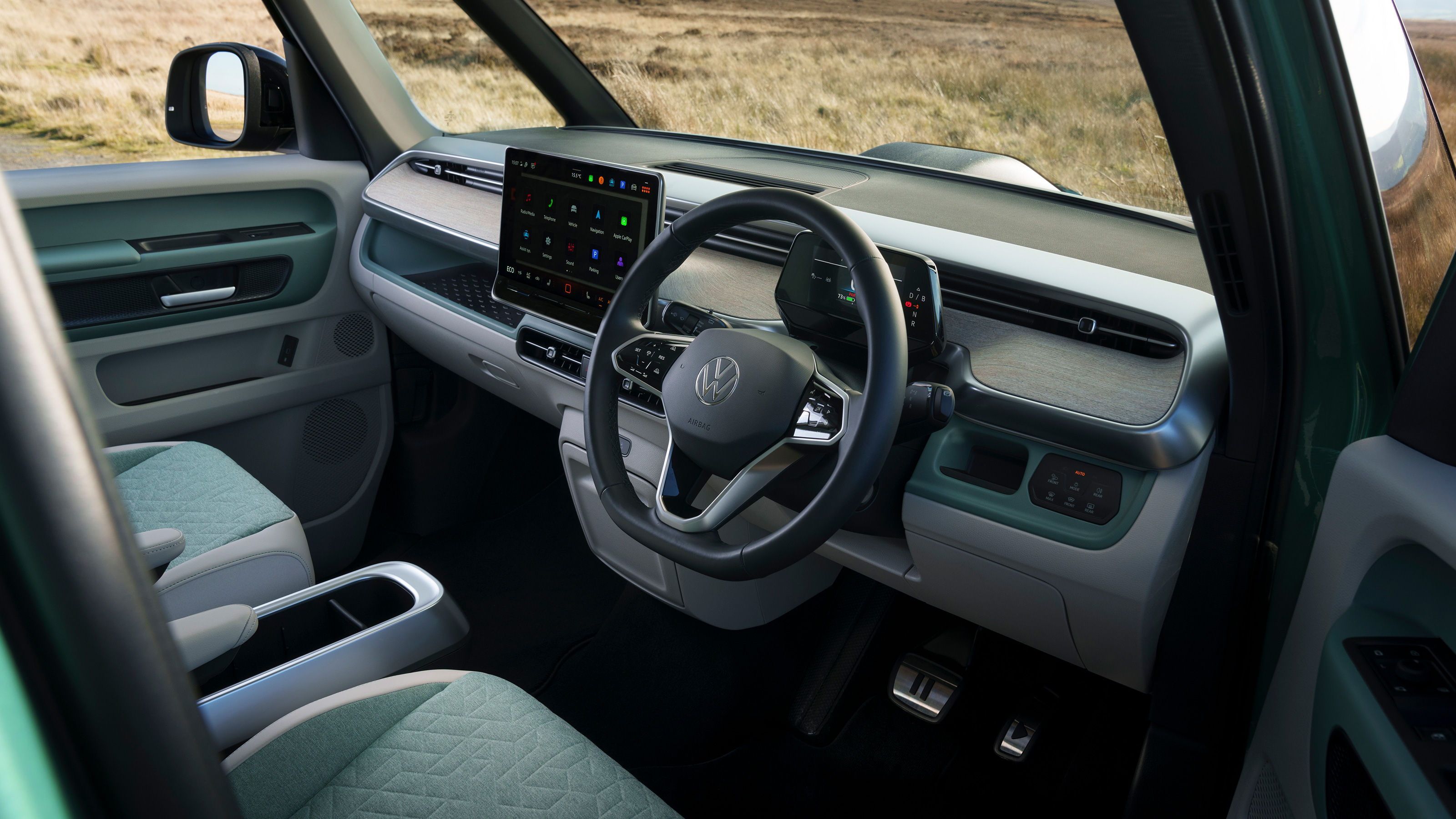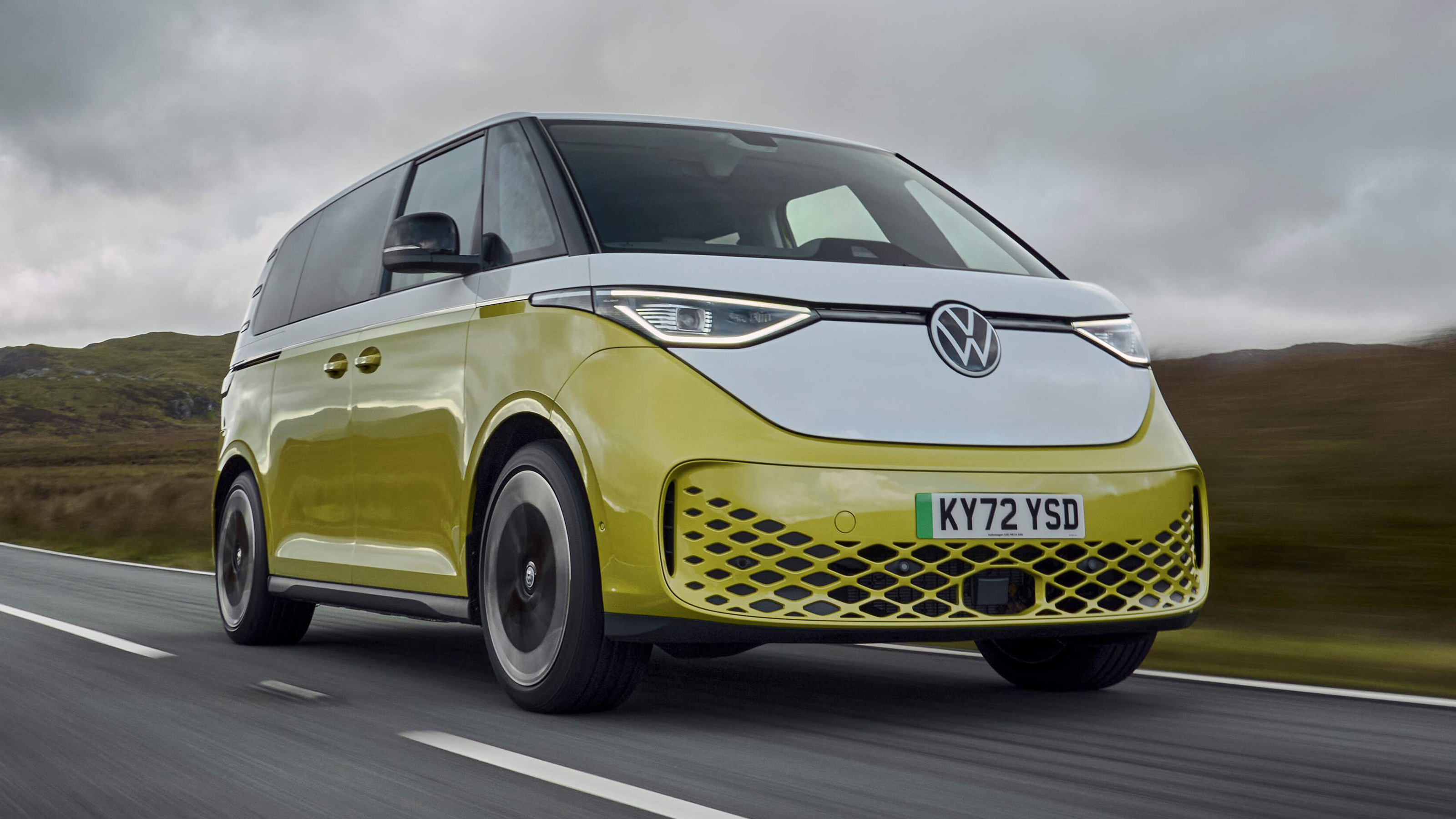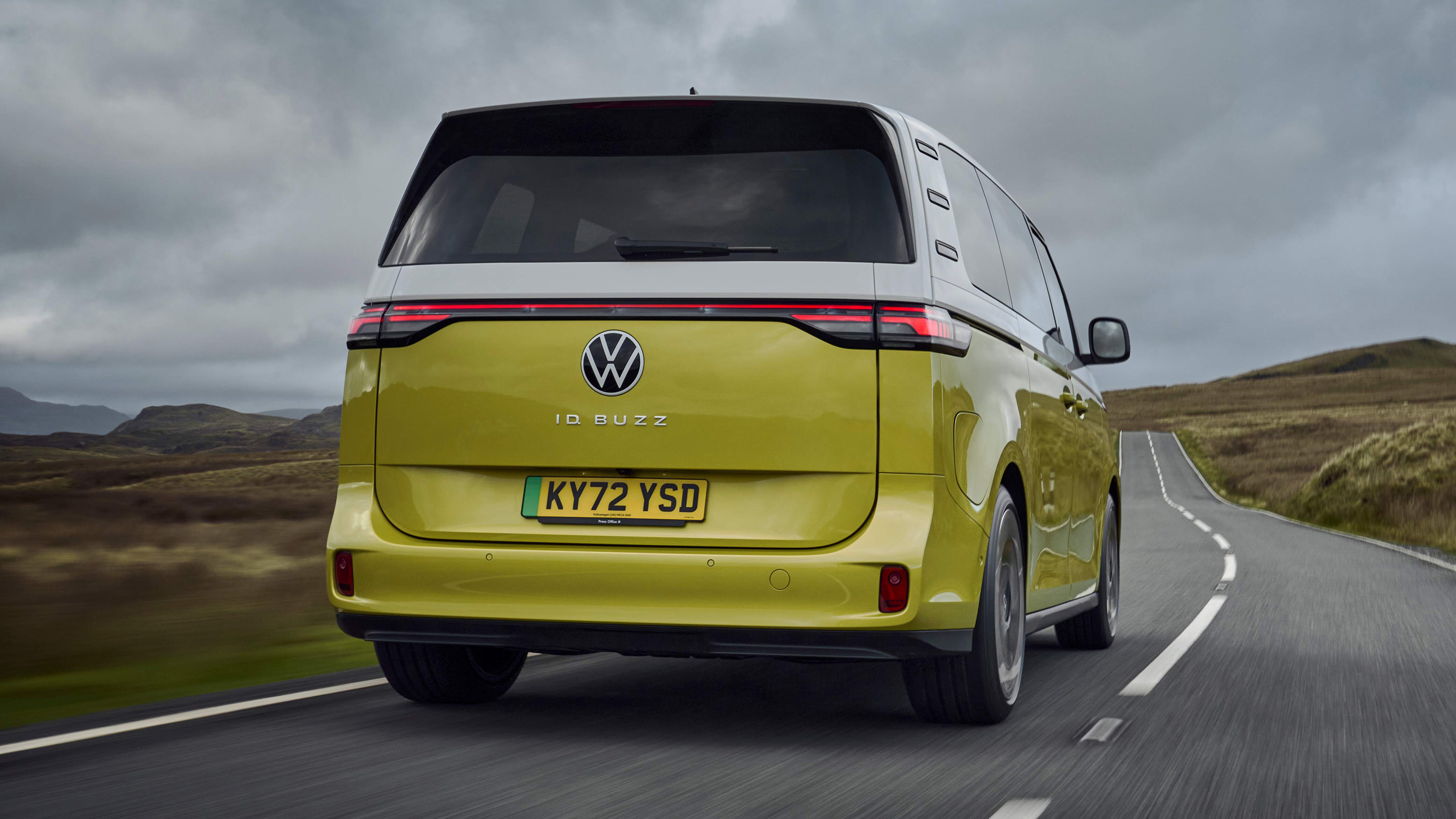
Buying
What should I be paying?
You’re still looking at this as a van right? Which means you still think a £59,035 start point is borderline ridiculous. But it’s not actually much more than VW was charging for a Caravelle, while the new T7 Multivan starts at £48,375. That’s worth a look if people-carrying, rather than active-lifestyling, is your thing. But it’s not electric, merely hybrid.
Other electric cars then. The Buzz comes in below the Mercedes EQC, Audi Q8 e-tron and lines up pretty well against the Tesla Model Y. It’s far bigger and more useful than any of them. And historically VW vans have been far more depreciation proof.
VW’s finance is currently at 4.9 per cent APR, which means a base Buzz, with an £13,578 deposit, will still cost you £422 a month over four years, with an optional £27k final payment, meaning you’d have paid £6,000 more on finance than if you’d bought it outright. It’ll pay to shop around.
But look at it and tell us you wouldn’t feel happier stepping outside and seeing this on your drive every morning than a Tesla? That the kids would have more fun in this, that journeys would be more enjoyable as a result?
And beyond the financials, doesn’t the Buzz look like a brighter, cleverer solution for the future? We’ve said this before, but could the ID. Buzz signal the start of the SUV’s demise? Could it kickstart an automotive revolution in the same way as the original Renault Espace? It’s less pretentious, less aggressive and better at delivering the greatest luxury you can have in a family car – space. The electric age needs a new shape, a new style and here it is.
Featured

Trending this week
- Car Review
BMW iX3






